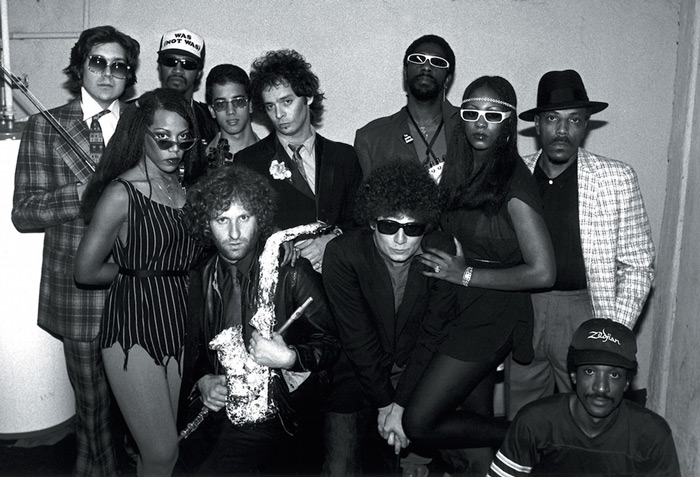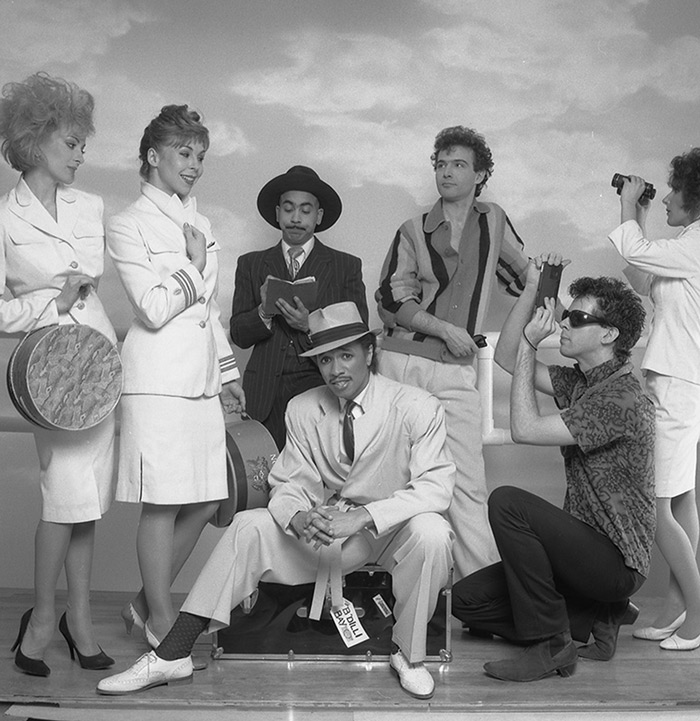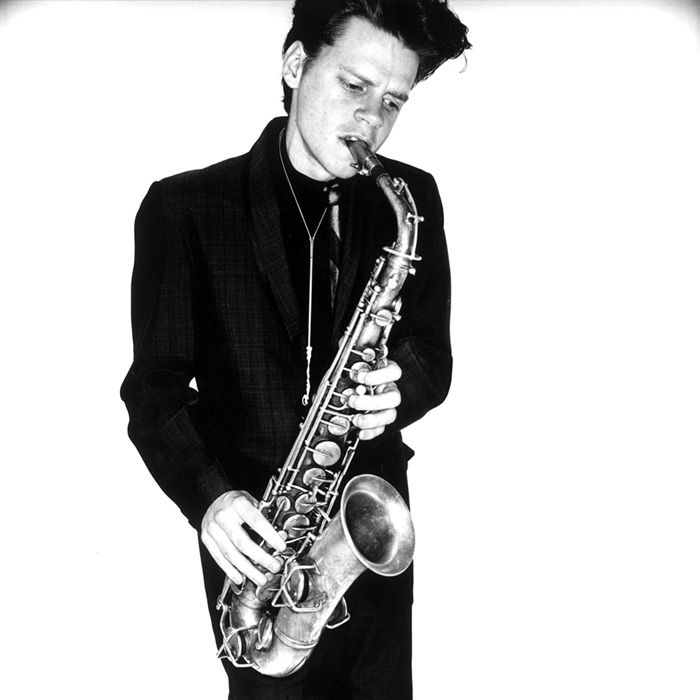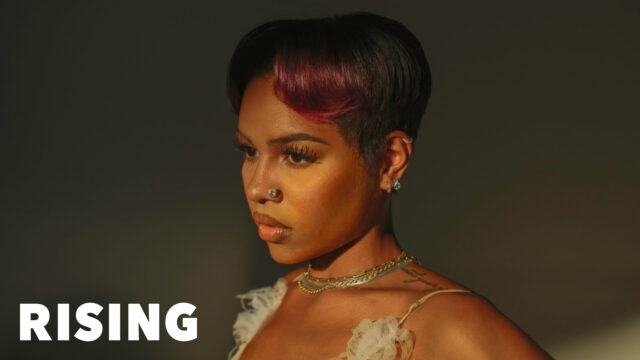Ze New York Groove: Michel Esteban & the Story of ZE Records
We talk to the ZE Records co-founder about his iconic label and 1970s heyday of New York.
by Bjørn Hammershaug
New York in the mid 1970s was quite possibly the most dynamic and vibrant music scene the world has ever witnessed.
In the midst of a broken city, where rising crime, frequent blackouts and piling garbage made up the scenery, artistic spirits from all over found a creative haven to express their own art. The city’s miscellaneous scenes also opened up for a multitude of constellations across different genres, embracing both the nihilistic and the hedonistic.
A cultural melting pot thrived in this urban wasteland, stirring up sounds never before heard, setting the bar for forward thinking music for decades to come – not to mention leaving some of the world’s greatest recordings in its wake.
In the middle of it all, Michael Zilkha, the affluent heir of a U.K. retail chain, and Michel Esteban, owner of an iconic Parisian concept store, willfully entered the zeitgeist and became crucial parts of it all – absorbing both the filthy no wave and punk rock from CBGBs and Max’s Kansas City, as well as the energetic and rhythmic underground disco from clubs like Paradise Garage and the Loft.
In 1978, Zilkha and Esteban founded ZE Records as an imprint to embrace both these trends.
In just a few years they released significant and influential recordings by artists like Was (Not Was), Suicide, Kid Creole and the Coconuts, Lydia Lunch, James White (a.k.a. James Chance), Cristina, Lizzy Mercier Descloux and many others. The sound of ZE Records and the sound of New York are inherently linked. Both nourished the meetings of different genres, tastes and ideas – whether it was avant-garde, salsa, calypso or noise – blending it all into a hybrid of global grooves and urban decay.
Earlier this year Light in the Attic re-released Lizzy Mercier Descloux’s seminal debut record, Press Color, attracting renewed attention for both Descloux and ZE Records. We used the opportunity to Skype up with Michel Esteban, currently based in Thailand (and recovering from a broken collarbone due to a recent motorcycle accident) for a chat about ZE Records and his fascinating career, as well as French new wave, British punk, and of course the brilliant heyday of the New York underground and downtown scenes.

Michel Esteban was far from a newcomer when he started up ZE Records with Michael Zilkha.
His Parisian store, Harry Cover, specialized in imported records, books and rock merchandise, and became an epicenter in the French capital for local new wave bands.
– Yeah, it turned into an important place for Parisian bands, so I soon became involved with music. We had a rehearsal place in the basement, and this band Marie et Les Garcons came to see me with a demo. And I just said, “Let’s release it as a single.” It was very simple. That’s how it all started; just as a fun thing at the beginning. I had no idea of distribution deals or anything; we just sold it from the shop and through mail order.
Esteban had at the time already spent some time in New York, writing for the Village Voice and covering the new sound as publisher of Rock News, writing about artists like Ramones, Television and Patti Smith, and connecting it with the bourgeoning downtown scene. He had previously published Patti Smith’s books, Witt and The Night, leading to a friendship with John Cale, who Patti introduced to him to while Cale was producing her iconic debut, Horses.
– I sent the Marie et Les Garcons’ demo tape to John in New York, and at that time such things took ages. But two-three months later he mailed back and said he’d like to produce their song “Re Bop” in New York.
How will you describe the scene in New York back in those days?
– At that time, New York underground was like 50 or 100 people, and you always met the same people around. Most of the people you met at CBGB’s or Max’s Kansas City were in bands, or they were groupies or friends of the bands. Also, there were not too many places to go to.
– In such an environment it was only natural that Talking Heads opened up for The Ramones. Musically they were very different, but you know, that happened at CBGB’s. After the show everyone just hung out by the bar, all the musicians stayed there, and they were all more or less like friends, even though there were lots of differences between people. Things happen like that, and I don’t think then we realized it was of any importance.

Did you sense that there was something new in the air?
– It was definitely something new, and definitely a break from the past, at least for a couple of years. It didn’t last that long. That’s why I call my upcoming book ‘Right Place, Right Time.’ It happened in the right place, at the right time. I don’t know why. Things go in circles, five years prior nothing much happened, and then it suddenly exploded, and lasted for three or four years.
– I was lucky enough to be there, and I was lucky enough to be in London and witness the beginning of The Sex Pistols, The Clash and the birth of British punk. I saw all their first gigs too. When Malcolm McLaren came into my shop in Paris he played me the demo of the Sex Pistols and asked me to come and see them in London the following month. It just happened.
What was your experience of New York the first time you arrived?
– It was just like expected, because I was such a big fan of New York. And New York for me was the films of Martin Scorcese and John Cassavettes, and the music of The Velvet Underground. So when I arrived in New York in 1974, I was in the film. When you went to Times Square in ‘74, it was not Disneyland, it was Taxi Driver.
– I’d been dreaming of New York for so long, and being 22, 23 at the time, for me it was a dream come true. It was a fantasy. But it was real. New York at that time was a very interesting place. It was bankrupt and violent, but lots of things happened. So for me it was just great.
From 1977 and onwards, Esteban started spending more time in New York than in Paris.
Around that same time John Cale called and wanted him to join his new label, Spy Records. Spy was a joint effort between Cale, Esteban, Jane Friedman (John and Patti’s manager) and Michael Zilkha. The collaboration lasted just a few months, until Zilkha and Esteban decided to start their own label: ZE records. One of the early key figures in the ZE circuit was his then-girlfriend, Lizzy Mercier Descloux.
How did you meet up with her in the first place?
– It is a very romantic story. I lived on rue des Halles in Paris, where I had my shop in the basement and my apartment on the fifth floor. Lizzy lived right in front of my building. I saw her the first time on the balcony, and thought she looked like a, you know, a really lovely girl. She was always riding a bike, and parked it in front of our building. So one day I just put on a note, telling her she looked nice and asked if she’d like to drop by my shop. She came, and we stayed friends for 40 years.
Lizzy died of cancer in 2004, but left behind her a vast catalog of music and art. Together with Esteban, she became an integral part of Harry Cover and the Rock News magazine. She joined him over to New York and together they befriended people like Richard Hell and Patti Smith.
– [Lizzy] was very instinctive. She never wanted to be a professional or learn too much. In a way that was good, but that was also her limit. It’s great for the first album; when you’re fresh and want do discover everything – even if the professional musicians and the studio say no. So, in the beginning it’s a quality, after a few albums… it’s not a quality anymore. You have to learn things in a way. But she was like that, more of a poet than a singer and musician.

Descloux followed these instincts on her debut album, Press Color, recorded over just a few days in February 1979 at Bob Blank’s legendary Blank Tapes studio.
– We came into the studio without one song. We had two ideas: doing cover versions of “Mission Impossible” and “Fire.” That’s it; the rest came in the studio just playing with the musicians.
What are your thoughts on ‘Press Color’ today?
– I still love it, because I can still see in detail how everything happened. And 35 years later people not even born at the time love it, and I’m amazed to read all the wonderful reviews, like when Pitchfork recently gave it a Best New Reissue. Great! I’m not gonna complain! But if you had asked me that question in 1979, I’d be like “Come on, we won’t care about this music in 35 years.” But it’s still there. And people enjoy it, so I guess we did something right.
During its existence ZE developed into an independent and varied entity with a particular esthetic line, covering the arty New York underground scene and the strong individualities that composed it.
At the height of their powers, ZE was hailed as “the best independent record label in world” by Melody Maker, and “the world’s most fashionable label” by The Face. Their influence on modern music is indisputable.
As Spin wrote a while back, “Like all great independent imprints, ZE took chances on oddballs nobody else would. And on the dance floor, at least, it had hits. These have been compiled in countless sequences over the decades, and their influence still echoes through contemporary music – from M.I.A. to Buraka Som Sistema, LCD Soundsystem, Electric Six, Ke$ha, Scissor Sisters, K-Pop, and New Orleans sissy bounce.”

Ze released a steady stream of landmark releases, including James White and the Blacks’ Off White (1979), Lydia Lunch’s Queen of Siam (1980), the eponymous debut by Was (Not Was) (1981) and The Waitresses’ “I Know What Boys Like” (1982) – just to name a few.
Are there any of your own releases you hold especially dear?
– Oh, there are lots of them. I really like Kid Creole and the Coconuts, Material, Lizzy, Cristina, the second album by Suicide is really good. I absolutely love their song “Dream Baby Dream.” You know, we only did albums with people we liked, absolutely not in a music business sense with promotion, expectations and all that. We just did it! Fortunately we had money, and we had a good distribution deal with Chris Blackwell and Island Records. But basically we were just kids wanting to have fun.
You mentioned Suicide and the notorious Alan Vega. Did you become friends with him?
– Well, not exactly friends. [laughs] But obviously we knew everybody. You know, Michael [Zilkha] was the son of a billionaire, which is very rare in the music business, while I had some money from my shop. We literally were the two people with money. We were the bank to people whose life was very difficult in New York at the time. So that relationship was a bit strange, and something especially Michael had to manage when a guy like Alan Vega came up and demanded money. But we managed, and looking back 30 years later I think we did pretty good.

How will you describe the relationship between you and Michael?
– Almost everything we did was something we really wanted to do. Some ideas were mine, some were Michael’s work, and I was not crazy about all of them. We were different. I’m French, so even if I speak English I cannot read Shakespeare in English. Whilst Michael was raised in England, he went to Oxford and he was more into lyrics than me.
– I was into the music. The first records I bought as a kid – by The Beatles, Stones or Beach Boys – I didn’t understand a fucking word. It was all about the music and the spirit of the words. Michael read the lyrics first. He signed Davitt Sigerson for example, because he loved the words. I was not too crazy about the music, but that was his thing. And that was OK too.
What are your views on the music being made today?
– Look, I’m 64 years old. I’ve been listening to music since I was 10. I’ve been listening to so much music; it’s very difficult to impress me. When I hear new music I often say, “well, it’s not bad, but it reminds me of this or that,” you know? Listening to stuff that reminds me of music I’ve already experienced doesn’t really excite me.
– What excites me today is when I listen to something I haven’t heard before. Now I listen to lots of hip-hop music, there’s some productions there that’s just… wow! I’m not crazy about the lyrics and the melodies are sometimes not there, but on the production side there so much great stuff. For me, that’s new. I like a recording that says, before this there was something, after this there’s something else. I like albums that changes things, like what Massive Attack or Björk achieved in the ’90s.

Do you feel ZE Records has gotten its due recognition?
– We never cared about that when we started. It was all about just doing it. When the album is done, it’s done. Of course you’re happy if it sells and gets good reviews, but there’s nothing else you can do. It’s done, and you did it the best way you could at that time. I enjoy good reviews, but there’s nothing to do about it.
– Neither Michael nor me were looking for big success or recognition, we were interested in what we wanted at that time. Same thing as now: I’m living on a paradise island, just doing what I want to do. And to me that’s the most important thing about life. The rest – success, glory, money – if it comes, okay, but don’t sacrifice anything for it.
In 1982 Michel Esteban left New York and ZE Records to pursue other solo adventures, while still working with music as a producer.
Michael Zilkha closed down ZE Records two years later, in 1984, but in 2003, Esteban relaunched the imprint, which has now released more than forty albums since 1978.
Next year we can expect his unique story in his own words, when the appropriately titled memoir – Right Place, Right Time – sees the light of day.



